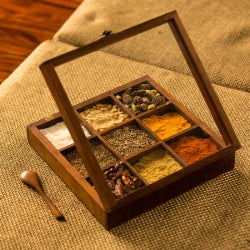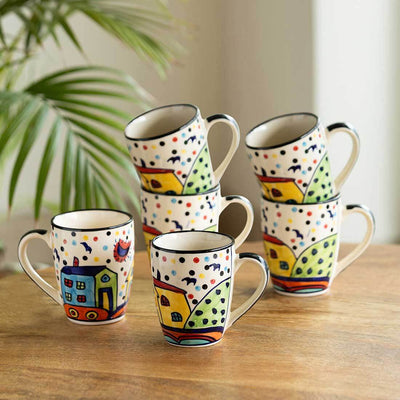15 Reasons why we celebrate Diwali
Diwali, one of the most popular festivals in India is celebrated with pomp and glamour. This festival is a symbolism of goodness; of right versus wrong; of good versus evil; of light versus darkness. Diwali has been derived from the Sanskrit word ‘Deepavali’ which translates to ‘a row of lights’. This is evident from the lighting of lamps in every household. These lamps are small and kept together in a row marking the festival of Diwali.
Though this festival is mainly associated with India, people all over the world are now seen to be celebrating the festival of Diwali. It is usually celebrated during the month of November and this year, Diwali is celebrated on 4th November 2021.
As a festival, its origin is very ancient. Perhaps it originated when Lord Rama returned to Ayodhya after his exile. But Diwali is not only attributed to Lord Rama; it is also attributed to Goddess Lakshmi, Lord Vishnu, Lord Krishna, Lord Ganesha and also Jainism’s twenty-fourth Tirthankara, Lord Mahavira.
Now, we shall read about the different stories related to Diwali to help us understand the different reasons why Diwali is celebrated.
1-The birth of Goddess Lakshmi:
According to Hindu scriptures, Goddess Lakshmi, on the day of Amavasya of the Karthik month, was married to Lord Vishnu on this day itself.
This day of Amavasya is the darkest day of the month and Goddess Lakshmi’s birth and marriage is a symbolism of light encompassing darkness wherein a number of oil lamps were lit to celebrate this auspicious occasion,
Hence, even to this day, Diwali is celebrated in honour of Goddess Lakshmi and marriage to Lord Vishnu.

2-Lord Rama’s return to Ayodhya:
As mythology has it, Ravana the king of Lanka captured Sita, the wife of Lord Rama; the seventh incarnation of Vishnu. Lord Rama with the help of his brother Lakshmana, Lord Hanuman and many other monkeys built a bridge that went all the way to Lanka, defeated Ravana and rescued his wife. On his arrival to Ayodhya, the citizens welcomed them by bursting crackers and lighting lamps. From then on, Diwali is celebrated to honour and commemorate this auspicious occasion.
3-The return of the Pandava brothers:
The Mahabharata also serves as an origin to the Diwali story. It is believed that when the Pandav brothers returned home after the great battle between the Pandavas and the Kauravas, they were welcomed with gaiety and jubilance. Oil lamps made of earth were lit to celebrate their return hence enhancing the significance of Diwali.
4-King Vikramaditya’s coronation:
Not only does Diwali have a mythological and religious relevance, but it also marks an important festival in the history of India. The great King Vikramaditya ruled India during 56-55BCE. He was a renowned warrior and a wise ruler. His coronation was much celebrated by the people of his kingdom by lighting lamps and bursting crackers and henceforth, Diwali is also being celebrated to honour the great monarch.
5-Lord Vishnu’s Vamana Avatar:
To rescue Goddess Lakshmi from King Mahabali during the Treta Yug, Lord Vishnu reincarnated as Vamana Avatar and tricked the evil king into giving all his wealth. As such, the significance of Diwali is once again reiterated; good triumphs over evil.
6-Narakasura’s defeat at the hands of Lord Vishnu:
Narakasura was an evil demon king who was blessed with a great amount of powers but used his powers for his own selfish interest. The Vishnu Purana mentions that there were about sixteen thousand women who were his prisoners. On the night preceding Diwali, Lord Vishnu had reincarnated as himself as Lord Krishna and he killed the evil demon king, Narakasura in the Dwapara Yuga thereby rescuing all the sixteen thousand women. To mark this event, the entire palace celebrated with much joy and exuberance.
7-Vardhamana Mahavira’s Enlightenment:
The twenty-fourth Tirthankara, Vardhamana Mahavira was born in Bihar to royalty. But at the age of thirty, he gave away all his worldly pleasures in search of true nirvana or enlightenment. After twelve years of rigorous penance, at the age of 43, Mohair gained spiritual enlightenment or Kevela Jnana under a Sāla tree near Jrimbhikagrama on the banks of the River Rijubalika. The event is recorded in the Harivamśa-purāņa and Uttar-purāņa texts. Not only is Diwali in the Jain tradition celebrated for the Mahavira’s enlightenment, it is also celebrated to ward off earthly desires which act as a hindrance to attaining nirvana.
8-The destruction of Goddess Kali:
For the protection of the good from all that is evil, Goddess Kali was born. The earth was filled with malicious demons and Goddess Kali fought them off and protected the earth. She is symbolized as the woman with power, i.e., Narishakti. However, after killing all the demons, the Goddess had lost all control and started killing all those that came in her way. It was Lord Shiva who intervened and saved humanity. Henceforth, on the occasion of Diwali, the Goddess’s followers pray to her for strength and courage to defeat evil in the world.

9-The lesson of Nachiketa
According to the Kanthoupanishad, There lived a boy named Nachiketa. He believed that the Lord of Death was as dark as the Amavasya night. However, on encountering Yama, the Lord of Death, he was surprised to see that the Lord was calm and had a dignified countenance. Yama told the boy that death is a necessary path, a path to find the true light. Therefore, the significance of Diwali is also highlighted by the enlightenment of Nachiketa.
10-Harvest Festival:
The harvest time of Kharif crops coincides with the festival of Diwali. Diwali is thus also celebrated to glorify the harvests and the hard work of the farmers adding more joy to the celebration.
11-Diwali for the Sikhs:
On the occasion of Diwali, the third Guru, Guru Amar Das organized a festival of light for all his brethren to celebrate the unity of the Sikhs all over the world.
On this same occasion, the sixteenth Guru, Guru Hargobind was released from the imprisonment of the Mughal king, Jehangir.
The foundation stone of the Golden Temple was also laid on this day. Hence, Diwali is also a very special occasion for the Sikh community.
12-Pope John Paul’s speech;
The late Pope John Paul on his visit to India celebrated Diwali by the lighting of lamps in an Indian Church. He then made a speech about the greatness of the country and spoke at length about Diwali. Hence, the people of India reminisce about the great man on the occasion of Diwali.
13-Swami Dayanand Saraswati’s enlightenment:
The founder of Arya Samaj, Reverend Dayanand Saraswati gained enlightenment on this day, i.e. the day of Diwali. Henceforth, He was known as the Great Saint Dayanand or Maharshi Dayanand. In India, this great man is remembered every Diwali.
14-The Hindu’s New Year:
Diwali also marks the Hindu New Year. On this day, all the devotees give thanks for all their blessings and pray for a better year ahead.
15-For the simple Joy the festival brings:
Whether one is a Hindu or not, Diwali always warms the heart. The diyas that warm the house, the creative rangolis, the crackers and Phuljadis, families and friends all gathered together to enjoy meals and exchange gifts; these acts bring a lot of joy to one and all. Hence, one reason to celebrate Diwali is that Diwali is Happiness and Happiness is Diwali.
If you are looking for the best gifts, both personal gifts and corporate gifts, ExclusiveLane has a variety of handmade gifts options for you to choose from. Here, every item is made with love and care. Gifting an ExclusiveLane handmade Diwali product is gifting Love.






Thanks for sharing these unknown facts about the Diwali celebration; great post with massive information.
Leave a comment